‘We have nowhere to go’: The pensioners barely surviving on Ukraine’s front lines
In the liberated towns and villages of Ukraine, the onset of winter brings with it a desperate need for fuel – but Russian shelling has left the people here without power, heat or water, as Bel Trew reports
The echoing crash of a shell landing nearby sends Luda’s pet dog scurrying into the makeshift shed that a neighbour made out of scraps of broken cupboards in an effort to provide shelter.
But the people in this frontline town in northeast Ukraine just stare numbly at the sky, bracing for the next hit. It goes like this most days: they are marooned by bombed-out buildings.
Another louder explosion cracks through the winter wind. The night shelling has begun.
“Why are we still here? We don’t have any other place to go,” 77-year-old pensioner Luda says simply, as a pot of gruel bubbles on the barbecue in front of her. “Like most of the older residents here, we don’t have money, or relatives – so what else can we do?”
This is Kosharivka, a Soviet-era metalworks town in Ukraine’s eastern region of Kharkiv. It was recently freed from a months-long occupation by Russian forces, and right now lies dangerously close to the front line.
The people here have no gas, electricity or water since Moscow unleashed what Ukrainian officials say was the largest torrent of strikes on energy infrastructure in modern history.
So, as in other frontline towns, residents are busy building these outdoor cabins, stoves and barbecues out of whatever scrap wood, metal and bricks they can scavenge from shelled buildings in the bitter winter. The grey air is heavy with tension as they sit and wait for the next barrage.
“We rely entirely on humanitarian aid to survive. Until 5pm each day we can get water from a nearby well,” says Luda, a grandmother of two, as some of the 90 families still staying in the towering Soviet blocks move like ghosts around the fires.
Temperatures are dropping fast, and snow will soon fall.
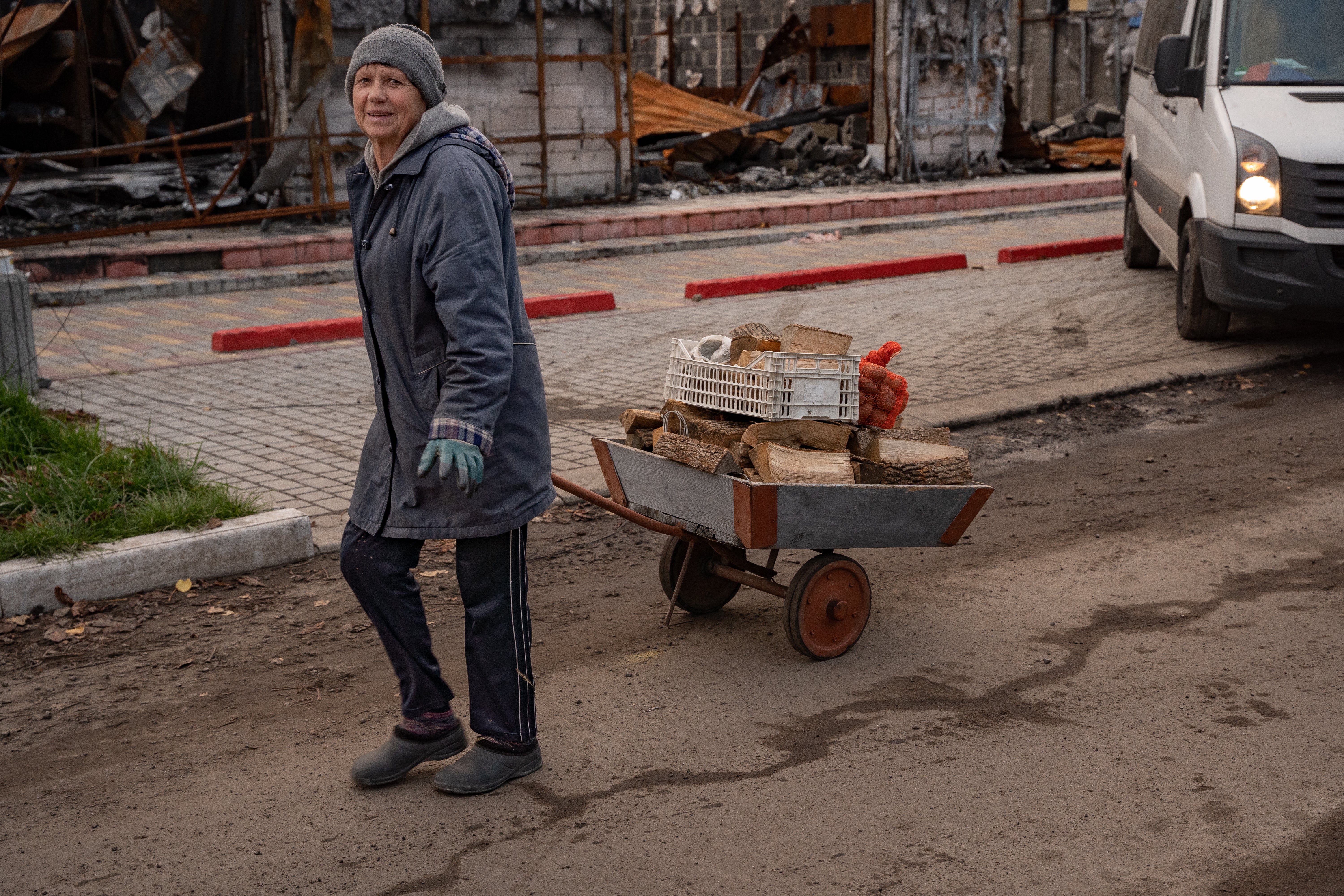
“I’ve lived here my whole life – I moved here to work in the metal factory. We can’t leave even though we know the worst of the winter is yet to come,” she adds.
Since the start of October, Russia has admitted to deliberately targeting energy infrastructure in order to degrade the Ukrainian military and remove what it claims is a potential threat against Russia’s security.
It is also serving to demoralise the people. Amnesty International has described the wave of strikes as a war crime, as they have “the sole purpose of terrorising civilians”.
Top Ukrainian energy officials warned The Independent that this is likely to have been the biggest direct attack on energy facilities in global history.
The Kremlin has unleashed “hundreds of missiles” at electricity distribution systems, trunk networks, substations and thermal generation facilities, resulting in nearly half of Ukraine’s power infrastructure being damaged or destroyed.
As temperatures dip well below zero, the world will “watch people freeze to death live on TV”, Mykhailo Podolyak, a key adviser to President Zelensky, told The Independent from the capital Kyiv. Vast swathes of the country are without power or water.
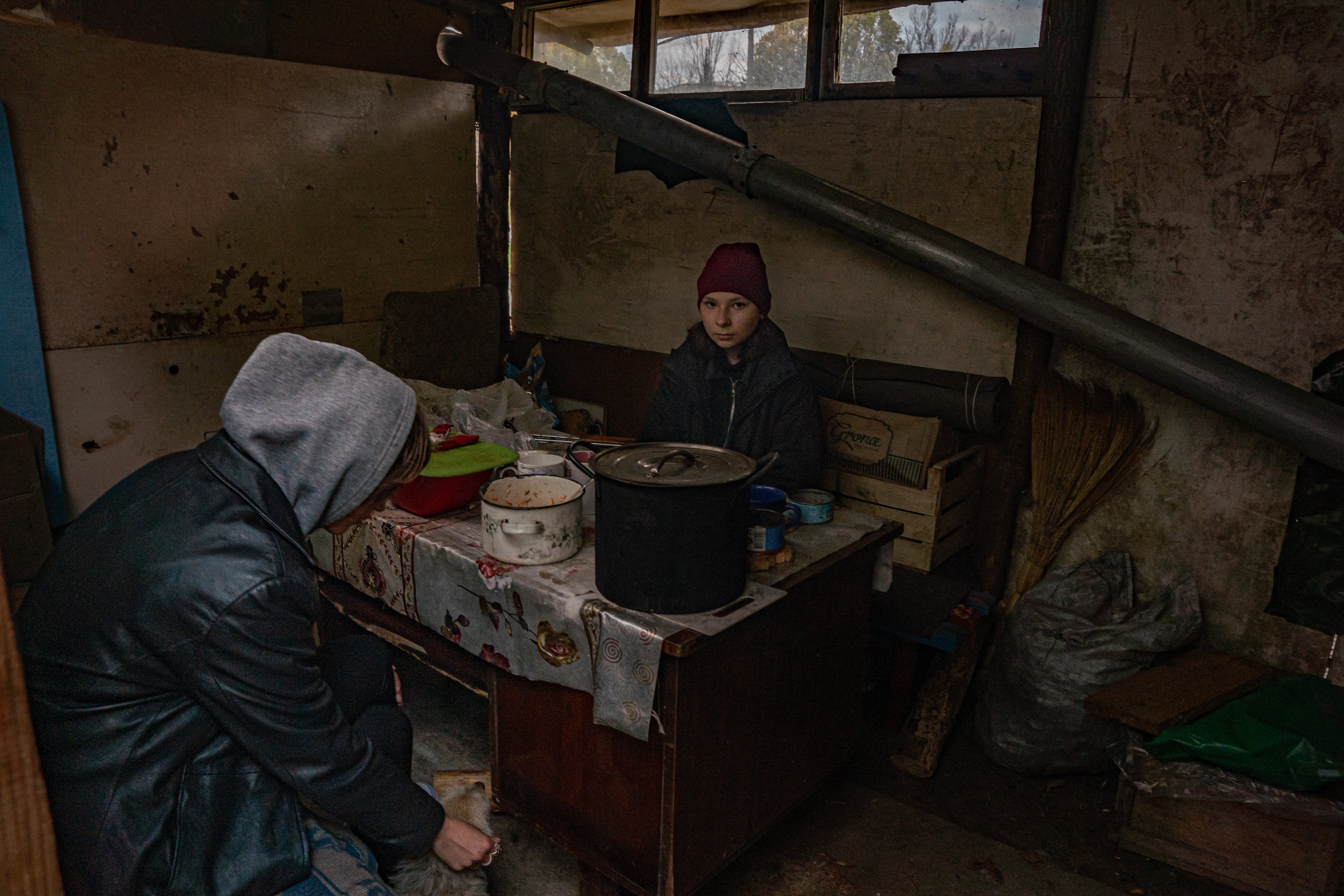
On Wednesday, a fresh wave of attacks on energy infrastructure disconnected the Zaporizhzhia nuclear power plant in southern Ukraine. Russian shelling has damaged the remaining high-voltage lines, leaving it with just diesel generators, raising further fears of a reactor meltdown.
Russian strikes were also reported in Kriviy Rih in central Ukraine, in Sumy, and in Kharkiv, where Kosharivka is located.
Vladimir, 54, the father-of-three who built Luda’s cabin, says that although he sent his wife and children away from Kosharivka, he felt he could not abandon the elderly and infirm who were forced to stay behind.
“There is no one else to care for them,” he says grimly while making a stove pipe. “They have no one else to help.”
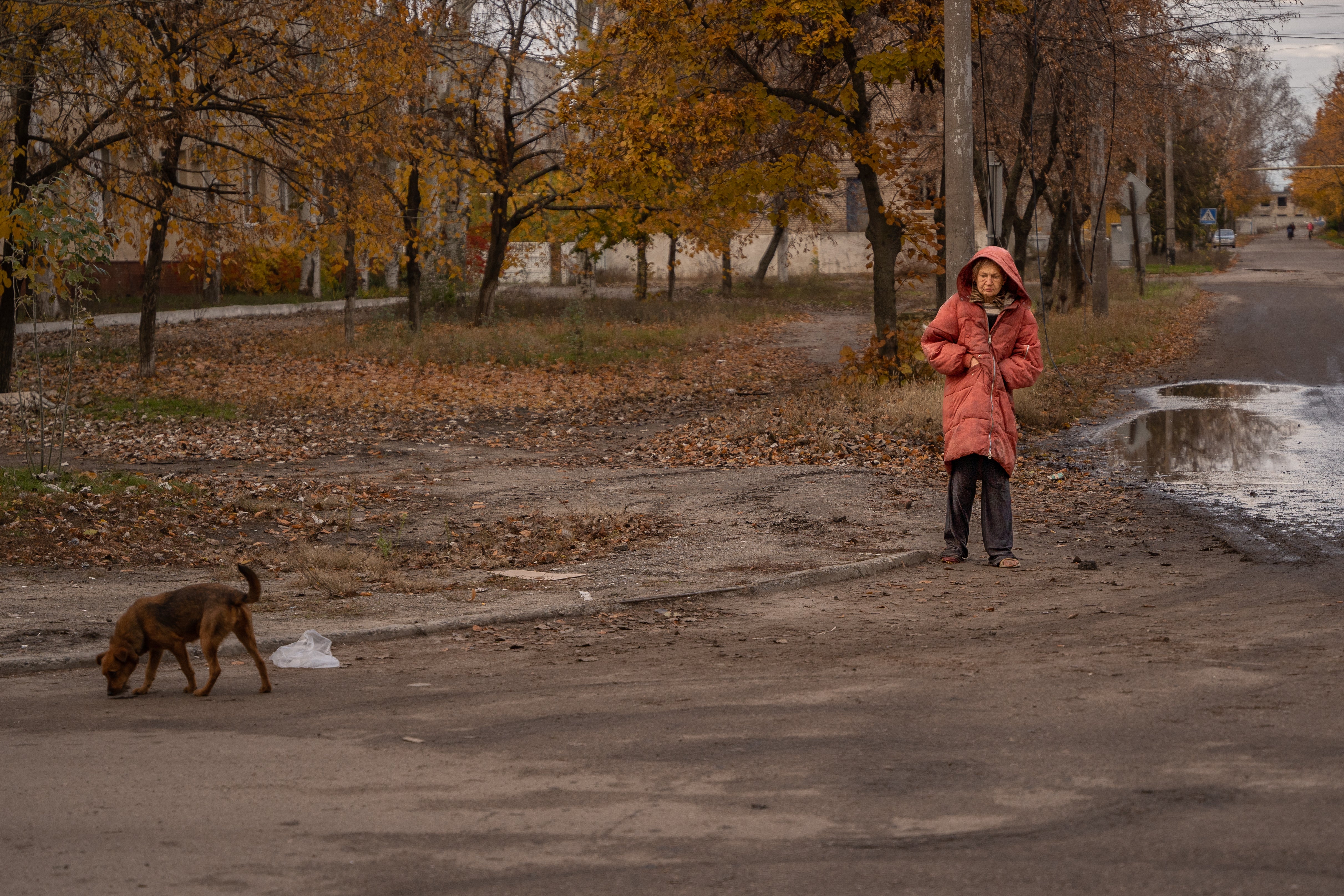
Igor, 28, a metalworker, has also stayed behind to help the elderly. He was detained by Russian soldiers in a basement cell with 25 others with no food during the occupation.
“Anyone who they thought was against Russia was taken, beaten and tortured. There were people held there for weeks,” he says.
The stories are depressingly similar to those told in other parts of the country – including in neighbouring Donbas, where the fiercest frontline action is now raging.
Lyman, in the Donetsk region, was retaken by Ukrainian troops a few weeks ago. There the authorities say they have exhumed nearly 200 bodies, the vast majority civilian, found buried in mass graves. There, too, there is no gas, water or electricity.
Residents, some with ripped clothes and broken shoes, move cautiously through the streets looking haunted.
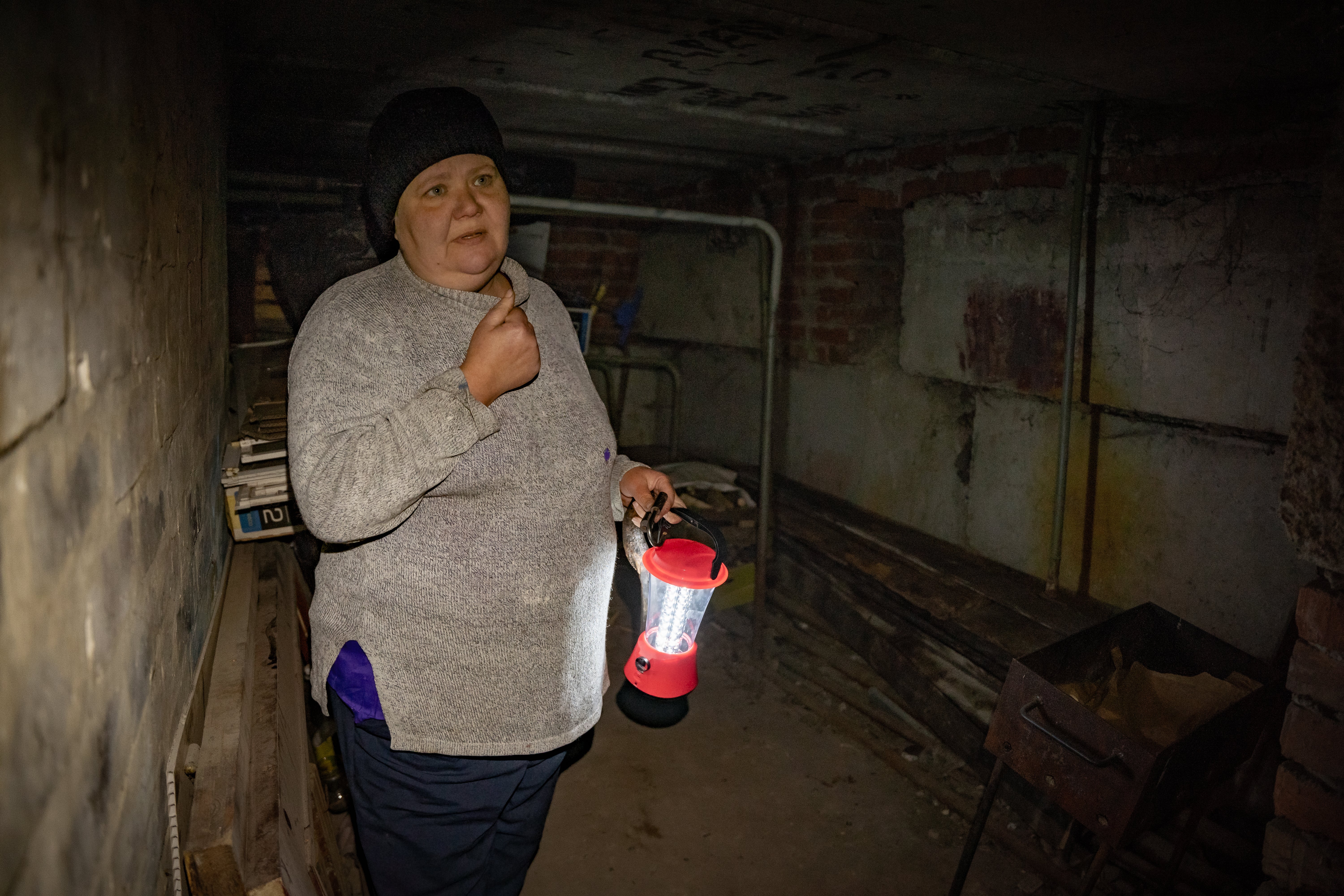
The sound of shelling and heavy machine-gun fire cracks and roars a few kilometres away. The town is still being directly hit – it is well within artillery range. Despite this, people search for food and for generators to charge their phones.
On one of the most badly damaged streets we bump into Laura, 67, who picks her way through the muddy hellscape clutching a plastic bag of soup given to her by a charity.
“I lived six months underground; I only came out when Ukrainian soldiers liberated us,” she says in a daze, dwarfed by the scale of the destruction around her and the Ukrainian military vehicles roaring past.
“I am all alone. In September my husband went outside to try to find wood, and stepped on a landmine. They took the body for exhumation, and I am still waiting to bury him.”
Overwhelmed, Laura starts to cry.
“I have relatives in Lithuania who told me to evacuate at the start of the war, but I was too afraid, and then it was too late. I regret that decision every day.”
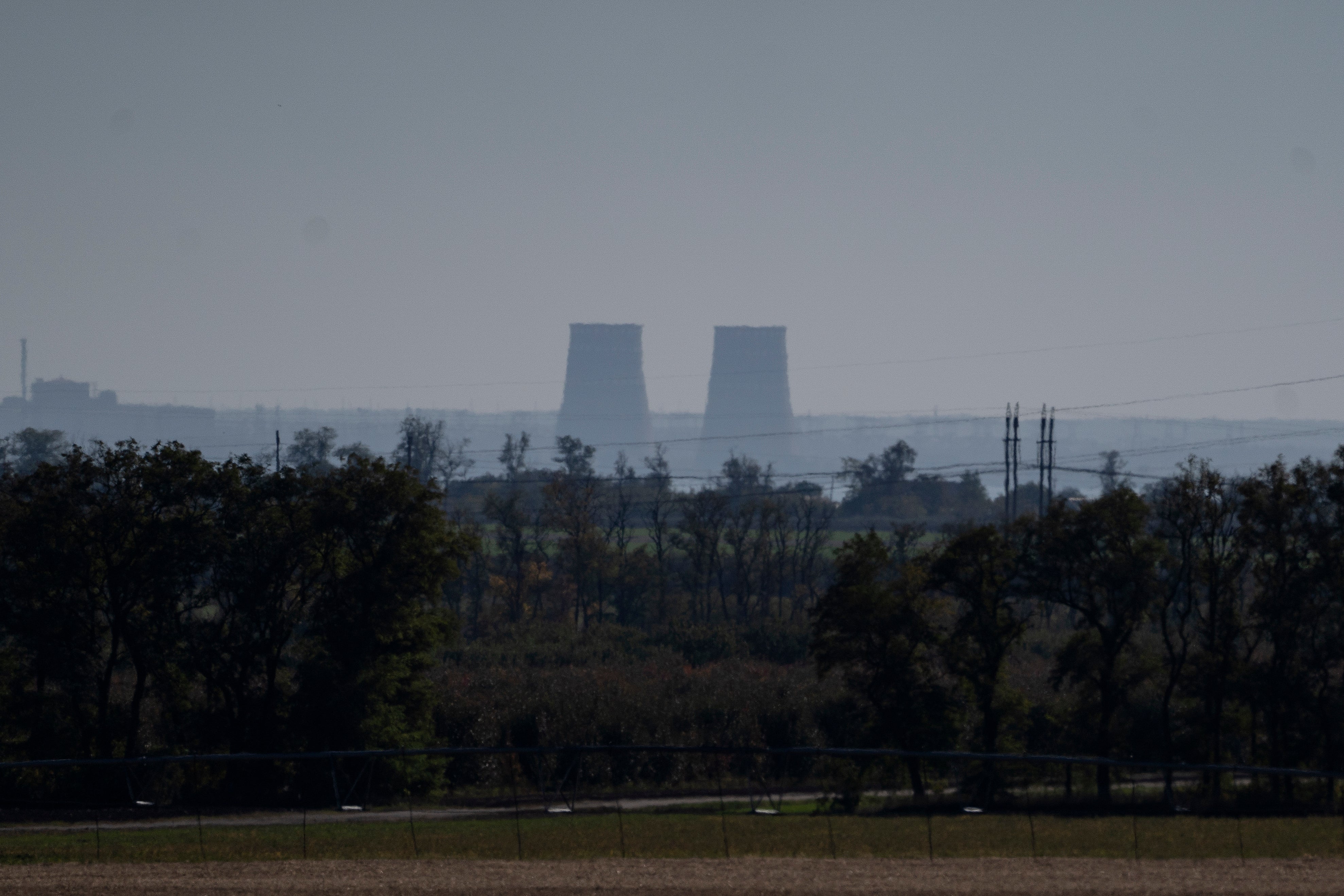
Down the road at a charity food-drop point run by international NGO World Central Kitchen, Luba says she is helping to make 1500 meals a day for local residents.
The 63-year-old now lives in the makeshift kitchen, as her house was completely flattened by shelling. She only survived by living underground for months.
“I was working hard all my life to get what little I have, and I lost everything In a moment,” she says, her words perforated by the constant whomp of shelling. “We are working to feed people but it’s a living nightmare.”
Nearby, Yelena, 47, shows us the basement where she lived for half a year below ground. A blanket is wedged in the metre of space between two walls, serving as a bed. She cares for her elderly mother, who is diabetic and can’t easily move.
“Winter is here and we are trying to get stoves, but we need wood. Those who have men in their family can cut big stockpiles of wood, but I’m on my own... all I can do is gather sticks,” she says in tears.
Back in Kosharivka, Luda is boiling some milk for the children still living there. It is the only foodstuff they can get hold of themselves, from cows in the surrounding countryside.
“We all know this will be the worst winter we have experienced in our lifetimes,” she says grimly, as the deadly heartbeat of shelling returns. “All we can do is pray.”
Join our commenting forum
Join thought-provoking conversations, follow other Independent readers and see their replies
Comments



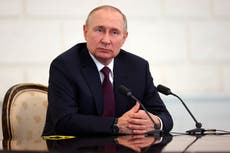

Bookmark popover
Removed from bookmarks